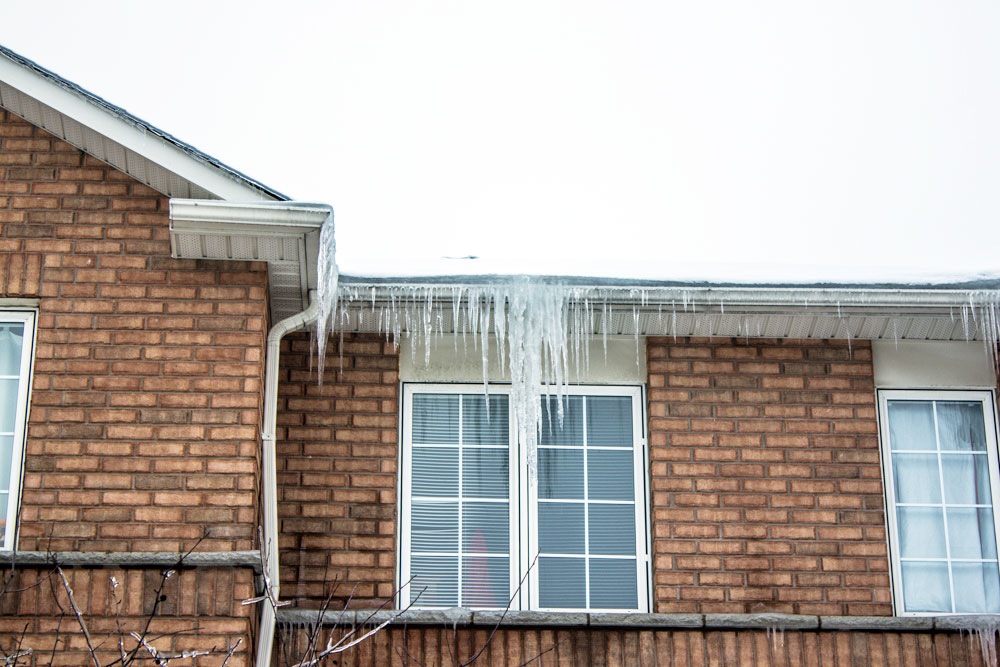TORONTO – If you’re like many people across the GTA, you’ve heard what sounded like something falling on your roof lately.

The first occurrence was widely reported across social media on Christmas Eve. Following the ice storm that swept across southern and eastern Ontario, many people thought a tree had fallen on their homes.
READ MORE: Mysterious Christmas Eve ‘boom’ heard and felt around GTA
The United States Geological Survey (USGS) didn’t report any seismic activity and there were no meteor reports to the American Meteor Society. One explanation could be a frost quake, or cryoseism, which is caused by ice expanding underground, which causes rock or soil to break, resulting in a earthquake-like event.
However, could it be something more common?
House readjusting
One suggestion is that it’s the cold affecting homes.
Though building materials such as concrete and steel become stronger in low temperatures, they also become less likely to take any more displacement.
READ MORE: Frost quakes: Why haven’t we heard of them before?
“Even with concrete or steel, when you put a certain load on them they will displace and create a certain strain and then they will fracture… your materials become a lot more rigid,” said Nemkumar Banthia, a professor of civil engineering at the University of British Columbia.
The rigidness doesn’t allow for sudden shifts in temperature, say from -5 C to a drop to -15 C.
However, “That doesn’t really account for really large noises,” Banthia said.
However, asked if it could make a loud boom as is being reported, Banthia said, “Typically not.”
Catherine Woodgold, a seismologist with Earthquakes Canada said that the more reasonable explanation is a frost quake.
“If just one person feels something, then there are multiple explanations like their house reacting, parts of the house will expand and contract with changes in temperature,” said Catherine Woodgold, a seismologist with Earthquakes Canada.
“If a number of people in the neighbourhood feels something then it seems more likely that it could be something like a frost quake.”
Banthia suggested that the house could still be to blame.
“You have the inside that’s being heated and the outside which is very cold,” he said. “As a result, you have what we call differential displacement.”
“I would think that this is most likely related to adjustments in the dimensions of the truss itself as a result of temperature changes from inside to outside, and temperature changes on the outside itself,” Banthia said.
Everything deforms differently at different temperatures. The result? Creaking or other sounds throughout the house.
Early morning booms
The reason the sounds are happening early in the morning? That might be due to the time people set their temperatures in the house to increase.
“Now you’re subjecting the structure to greater change in temperature,” Banthia said. “Which will lead to the structure to accommodate to this change.”
Usually, however, the sound is very low, Banthia added. This type of acoustic emission is called a burst. Though a loud sound is possible, if not typical.
David Phillips, Senior Climatologist with Environment Canada believes that frost quakes are still the likely explanation.
“We had this extraordinarily wet year,” he said. Precipitation in Toronto was almost 30 per cent greater than normal…the ground was saturated. Then we got the cold temperature in November and then also into December, where temperatures averaged about five degrees colder than they were last year on average. So that water froze.”
Add the water from the ice storm, and the cold, and that puts a tremendous strain on the building up pressure and cracks through the rocks and soil.
“At night we hear them because that’s when the winds are lightest and sound carries much farther in cold air, than warm air,” Phillips said.
“It seems more plausible to me that it could be frost quakes,” said Catherine Woodgold, a seismologist with Earthquakes Canada. “But I don’t really know.”
With warmer weather on its way, the sounds may stop and the mystery may never be completely solved.


Comments